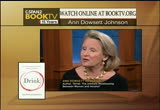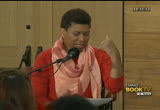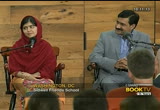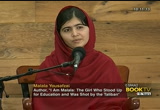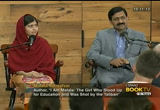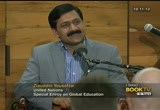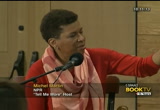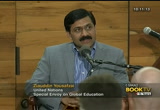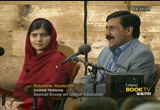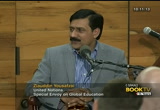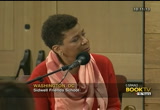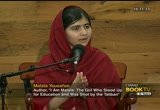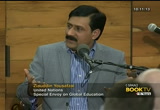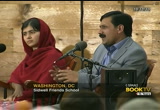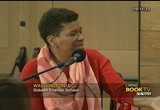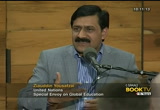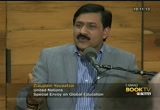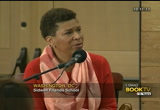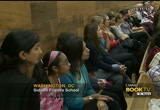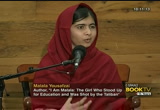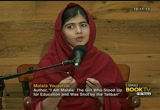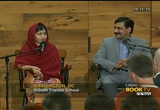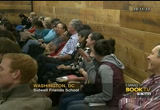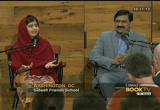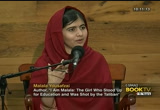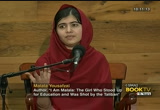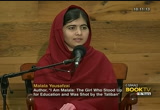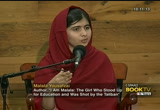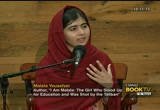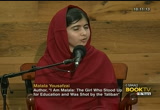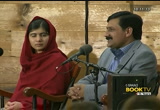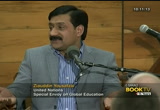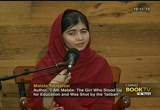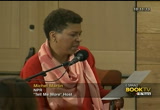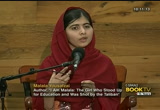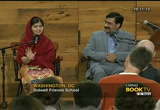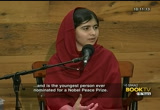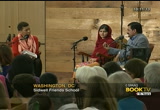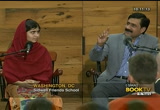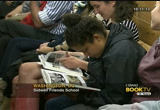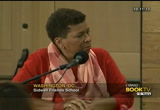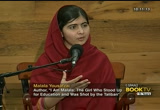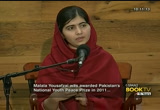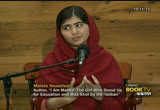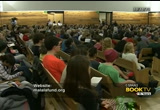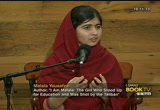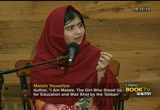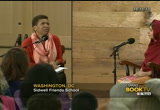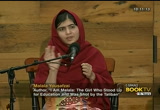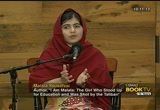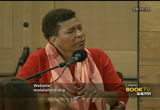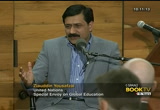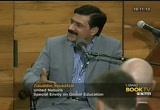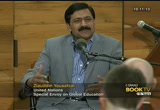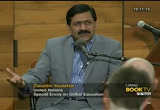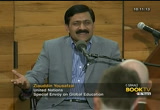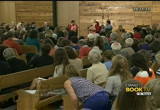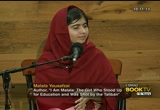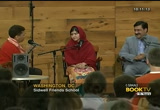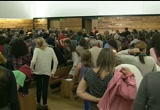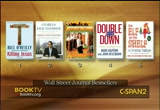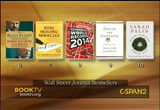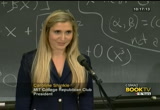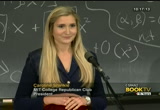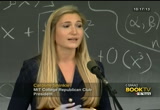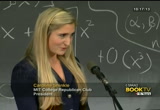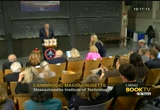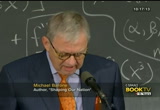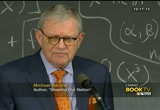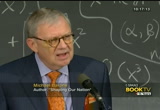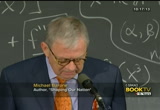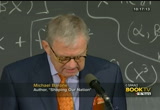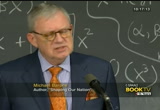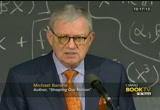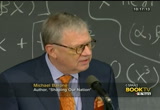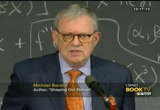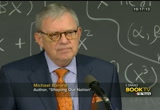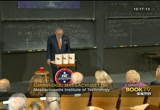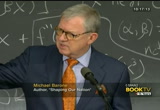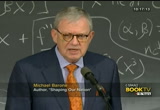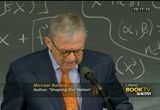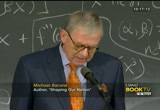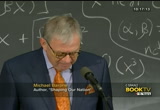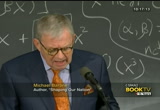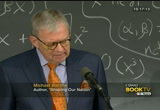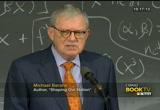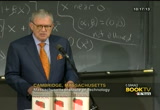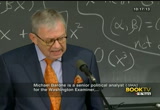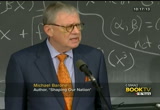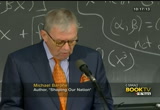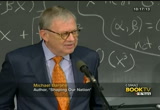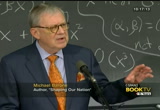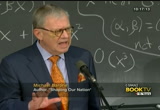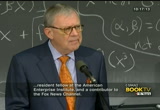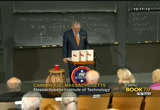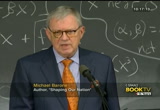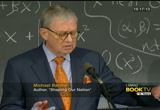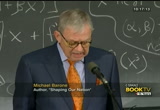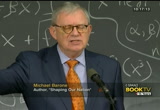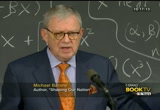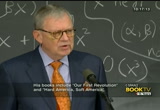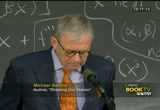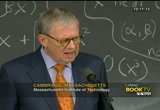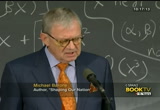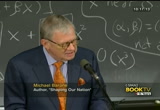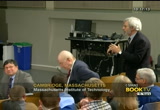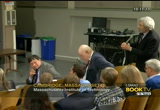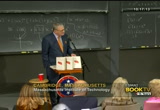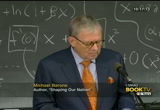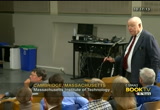tv Key Capitol Hill Hearings CSPAN November 28, 2013 8:00am-10:01am EST
8:00 am
this era, well-educated, highly professional woman, mother, and found myself drinking not tweet 2 glasses of wine but four or five or six a night. i slicken to some bad behavior. .. who said that in this country we have it all wrong. we stand up for judges but we said for teachers. let me say that again. we stand up for judges but we set for teachers.
8:01 am
if you think about it if they do their jobs properly, it's less likely we will need those of judges. if you don't mind, and i include you in this come if you don't mind i would ask of the educators here would stand so we may only properly for the work that you do. [applause] tom, i want to be sure you are properly recognized. ahead of my children's school is here along with two of our colleagues, karen and -- i don't know what you're hiding but we're glad you're here. welcome to you both. very happy to see. you are heavily happy to be seen, right? i cannot forget that he was a year ago this week, a year ago this week that these terrible
8:02 am
events of kurt. it seems like a long time ago, doesn't not? or does it? >> i don't feel really that something has happened to me. when i think of turn one, in my mind there are some pictures i'm lying on a stretcher and for head is bleeding, yours are bleeding but i don't think that's me because i am feeling that i'm just a normal girl and i'm feeling now freely powerful and gracious because after the incident, the good wishes of the people and the cards that people have sent me, and their prayers that have made me more powerful, so i'm really happy now and i don't feel like i was shot once. >> one of the things i learned from your book, which is wonderful by the way, if i may
8:03 am
recommend it, is that this is really a family story. this is a story and a sacrifice that was made by all of you. so malala, i'm going to ask you, what do you most admire about your father? [laughter] >> first of all, i'm thankful to him because he and my mother gave me birth. and he's a great father, and i am inspired by him because, because the work he was doing at that time when terrorism was spreading, at that time it was not to speak. the people who spoke were slaughtered on the next day. the people to raise their voice were slaughtered on the next day. more than 400 schools were blasted. it was really hard to speak at that time, and my father did. and i got inspired by him, and
8:04 am
that's why i speak up for my rights and for ever go to get education and to go to school. >> ziauddin, what do you most admire about malala? [laughter] >> that is a difficult question. i think malala is an average girl, but we are something which is -- [laughter] something extraordinary about it. she never agrees with main. [laughter] -- with me. she always jokes, and she's very humorous. not very straight, i don't know why, because she had so many meetings on the stage. one special quality which she has that she doesn't commit the
8:05 am
mistake again, i mean, if she has made any mistake in life, once. so she doesn't repeat her mistakes. and she's very respectful to her teachers, to her elders, and her brothers. she's a good help. i love her. >> i do want to ask you, as was mentioned, you ran a girls school in pakistan that malala, you attended. i have to ask what gave you this passion for girls education? it's one thing when you're the person who is on the bottom to want to rise but it's another when you're on the top and want to share the privileges that you had as a man and as a head of household. so where did you get your passion for girls education? >> basically, i was born in a society where girls are ignored.
8:06 am
i mean that in our society, in our developing in poor countries. even in developed countries. women are not given their status which men have since centuries. the right from the very beginning, i was very sensitive to this kind of discrimination, and i was born in the house of cleric. my father used to lead prayers in the mosque. he was a great speaker. but he was broad-minded and he was very -- [inaudible] he also taught me many things, and i learned from him so many things. by in the same home, i had five
8:07 am
sisters and none of them got in education. until my high school, i cannot see any girl in my school in my classroom. so you can imagine that girls education was not at all there. i mean, so in such a society, such a situation i was very sensitive to all this discrimination, especially towards girls. for example, in the morning time when i was used to pretend with milk and cream and my sisters were given only key, so i used to take -- i felt this kind of discrimination. later on when i got mature so i became more sensitive to all these discriminations, and when she was born and i became very
8:08 am
much sensitive towards girls, towards women discrimination. i wrote points about this that lives in girls, women and men, they are equal. and i think that this simple biological difference between the men and women should not be the best of political and social discrimination. so this kind of thinking which made a difference, and i usually tell people i am often asked what special training have you given to your daughter? so i usually tell people that you should not ask me what i have done. rather, you ask me what i did not do, which is usually done by parents. i did not clip her wings to fly. i did not stop her from flying. and all girls like her, they can
8:09 am
fly, and i always get a message to there's of the girls, where girls are suffering, trust your daughter's. honor your daughter's. and educate your daughters. they are amazing. [applause] turn one com1 the things i've heard you say which has not gotten a lot of attention in fact he said the united nation when you spoke earlier is that you are not just fighting for the rights of girls to get education at your also fighting for the rights of boys to get education, including the children of the terrorists. i like to ask you to tell us more about that. why do you feel that way? >> there has been a discrimination in our society, and men have been doing this for centuries, but this time, we
8:10 am
women are going to bring change. we are speaking up for girls rights but we must not behave like men. we must not behave like they have done in the past. we must believe in equality. and we must take each decision with justice. so that's why we not only speak about girls rights, but we also speak about boys rights because in many countries they cannot go to school because of child labor. the only job is -- >> tomorrow, maybe goes will be going to school but they'll be so many boys out of school. if you want to bring a change in, we must do it with justice. [applause]
8:11 am
>> the other things i've learned from your book which i'm not sure that everyone fully understand is that your family was under threat for a very long time. this is not something that just happen overnight. this is not something that happened in a day or a week. it was really years that you feared for her safety and for your family safety, that you were being threatened for a very, very long time. i think a lot of people would be interested to know how you sustained yourself. how did you keep going? >> yes, of course, i was in talibans radar for a long time, last three or four years i can say. so not only me, because in swat valley, leaders, hundreds of elders had been killed. they had been assassinated. and i was one of them. and i took care in my own way,
8:12 am
but i didn't have any security. but one has to live -- i mean, there is no option. when she was targeted just 10 months before when she got found in the year 2012, they issued a warning that if she is speaking against us and we will not tolerate it. and we will kill her. not only her but us included. but we thought that even terrorists might have some ethics, because they just tried some 1500 schools but they never
8:13 am
injured a child, and she was a child. and we thought it was a misunderstanding that they will not come for a child. so i was, i mean, there would be target, not her. but since, i mean, one year we were thinking about this, too, that she would be targeted but there was no option. we had to live in the valley. we had to fight for our rights. >> but some people could have said it's just too dangerous. like close the school. some of the fascinating details of the time when you took the girls on a field trip, do you member, to the mountains just to see the river? and you got a nasty letter saying what is this with taking these girls? you are doing immoral, improper things. did you ever think maybe i
8:14 am
should close my school? maybe it's too hard? >> i think this kind of fundamentalism, radicalization in the past four or five years, in swat we had a very peaceful, a society which had a great army and diversity. and we had a famous word in old language which i speak -- [speaking in native tongue] it means my friend has ended and i'm a muslim, and to love and respect my hindu, friend, i seek in the temple. and, it was interfaith harmony. how does this happen after the cold war when --
8:15 am
[inaudible] i mean, in the 80s, early 80s, this fundamentalism and radicalization started, and it is not just one day. this radicalization has been brought since long, and even i'll tell you that in the book, and they used to be taught that two plus two equals four. they used to be taught that if there are 20 soldiers of this army and you kill 10, how many will be remaining? so these are the questions.
8:16 am
so if you radicalized a generation and you jihadi them for your own interest, so this is the end, the peaceful citizens that learn like us, they lose their right. so this is a long story. >> it is. malala, do you mind if i ask him you say freely in the book that you were afraid. there were days that you lock the doors at night after anyone else had gone to bed. i don't have anyone else kind of knew that this is what you were doing until the book came out. i wanted to ask, how did you keep going? what made you keep going? basic courage is not the absence of fear. it's what you do when you are afraid. but how did you sustain yourself? >> i think when there's a darkness and when it's not, we
8:17 am
are afraid at that time. but when we sleep, we wait for the morning and we're hopeful that we will see the light of day when we open our eyes. there's always hope, and monday i knew that the taliban can come to our house, they can do anything. i used to lock the doors. i used to see everything in our house and i used to say three times to protect our house. then i think what about the street? what about the school buildings? so i would say two more verses. and then i used as a what about the pakistan? what about the world? been nice to see more and more and more. and i used to protect the whole world from any bomb blast. so i did what i could do and i was worried about my father, but i was hopeful.
8:18 am
and still, i think that it was my responsibility to speak up for my rights and to speak up for the rights of every girl. and it is still my responsibility to speak up for the rights of every child speed and you think you're making a different? >> when i look at the response of people, when i look at the love and the support of people, then i think that we are going to make a great change. first, no one could raise a banner if we're against the taliban. no one could say shame on you, the taliban. but now people can. they are only known by the terrorist. now people call them the taliban so it's a great example. now people dared to speak. they are not afraid of the terrorists. and i'm hopeful that a day will come that we will see every child to go to school. most of the time i'm related to the taliban, but i want
8:19 am
education it and when i talk about education, not only taliban, not only terrorism is the heart of the wheel. education by timing issues as well and we must keep in mind, there's poverty, children are suffering from child labor. they are suffering from child trafficking. they are being used for earning money by some people, by some robbers. there are cultural norms and traditions that stop children from going to their schools. in our society, i'm proud to be a pashtun because we're famous for our hospitality to famous for our courage, but still the our some norms in our culture that does not give equal rights to girls. there are many difficulties for children to go to school. not only terrorism. so i think we must fight all
8:20 am
these issues, and the best way to fight these issues is to educate those people. >> forgive me for making a joke, as big of child labor, you're working very hard these days. [laughter] i understand the heavy going from like place to place. you been on quite -- are you having any fun at all? [laughter] >> that's a very nice question. [laughter] i miss those days, but -- [laughter] >> dad? >> dad is fine. [laughter] the first thing is outside of my home, i look like a very obd in, a very serious, a very good kind of girl that nobody knows what happens inside the house last
8:21 am
night -- [laughter] so inside the house, it does not mean that i was not be. my brothers used to fight with me, and then i had to give them my response. [laughter] >> of course. >> so that's like i have some rights to justify myself now. [laughter] so that's why, it's good to fight with your brothers and it's good to teach them advice. my little brother, he is nine years old, and i fight with him because i'm thinking about his future. [laughter] >> okay. >> he wants ipad, he wants iphone. so he wants to play games and i think that is not good for his future. and in response he cries and shouts to me and he says, you
8:22 am
can forgive the taliban but you are not forgiving me. [laughter] so that's what is happening in our house. very busy spinning so he is not sorry you're on a book tour now. spin they don't even ask about me. not at all. ass i think it's the fifth or sixth day on here in america, and they didn't ask about me. [laughter] spent so they have your ipad. >> what did he say to you, why are you so famous? >> they don't know what i do, why do i go outside. we were both sitting on the table and having breakfast. he said malala, he said i can understand why people are giving the prizes. [laughter] spent what did you say speaks i couldn't answer. i said, well, i will make you
8:23 am
understand later. [laughter] he said i cannot understand them everywhere you go people say this is malala and they give you a ward. what have you done? [laughter] spend this is just my unknowing sister who won't give me an ipad. i understand there's a from the competition between the two who will be the prime minister and he'll be the second year. who is winning? >> my brother in the middle, both of my brothers are younger than me but my brother in the middle, he doesn't speak about. he just stays on xbox. that's his job. i know that it's not like i'm underrating the games they play, but -- [laughter] the little brother, he is like, i hope there's no lawyer here. he's like a lawyer. [laughter] >> all, no, there are no lawyers here. >> whenever i fight with him, he
8:24 am
can just, the stylus is talking talking. he can change his emotions and like i was feeling guilty. was a really hard up on them? was a really cool? and like he just makes me feel that. and so that's what it's really hard to live with them. [laughter] >> what was her favorite subject in school? >> my favorite subject is the one in which, unlike physics. i like physics because physics is all about, it tells you about the laws, about the principles and the whole universe, and it explains great things, big things, the things that we cannot understand. it's hard to understand. >> all the npr people are saying, what? this nobody from science here?
8:25 am
will catch up. just keep -- i thought you were weak in math? you said that was your worst subject? did i get the rogue? >> like i'm not that good at calculations, but still i work hard. and i love english literature, i love english grammar at also love all of the subjects. i'm also taking an interest in history. i don't know why. >> i understand you from the competition with the other two girls in your class. are you worried there getting ahead of you met that you were on a book tour? >> she called me when i was in birmingham, and we used to have, like she was my rival and we used to fight a lot, who will get the top position, who will get the high marks. when i called her and asked her
8:26 am
how are you feeling, you're getting the top position? she said i don't enjoy my competition with anyone. now i don't enjoy my school. now i don't enjoy my exams even. i'm getting top position but it does not give me that much -- i'm a feeling that much proud as i used to like when she beat me. [laughter] because when i was in school, i used to get first position in my class, and i thought that i would be getting first position forever. i didn't know that there are many other girls who can defeat me, who can get higher marks than me to and it's a constant that we usually have. we don't think that we need to continue the hard work to remain on that position. and when she came to our school, i said like, it doesn't matter.
8:27 am
but when she came, she got the top mark and i got the second position in the class, and that death on i realized if you want to get this imposition, then work hard, like don't consider that you will always get the top position. and also, like be ready for anything. [laughter] >> i think you fit in very well here. who do you admire? so many people here admire you. who do you admire? >> i admire everyone, because i think everyone is taking a part in the society come in bringing a change. i admire all the teachers because they are teaching students. they are making to future generations. they are building the future. i admire students because they are learning. because they're working today
8:28 am
but it seems that it's just a normal life, and today i went to school, i'd taught students. but this is also come a major building to get when you're educating the students. so i admire everyone, especially those people who are thinking about changing society or thinking about the rights of girls and boys, and the whole thinking about peace in seven countries like syria, like pakistan, like afghanistan. >> do you want to go back on? >> of course, because how could one forget his own? i love pakistan and i miss pakistan, and i'm hopeful. i'm hopeful that i will go back to pakistan as soon as possible. but i want to go back there. i want to go back there but first i need to empower myself. i need to empower myself with knowledge, with education, and i need to study hard. i need to work hard. i will now be powerful and then
8:29 am
i will go back to pakistan. [applause] >> do you think that might be possible? do you want to go home? do you think you will be able to? >> it is a difficult question. i think personally as she said, she has to learn a lot, and she has a long way to go you. for me, i will go back when the situation is a bit normal. these days i think quite dangerous for me as it is for her. so we will go back. the love of one's own home and own land, i think it's a kind of feeling which comes when you lived your life. it's very difficult. you remember each and everything
8:30 am
of your homeland which you leave behind. i miss the shining faces of my students where i used to go every morning. i used to go from classroom to classroom, and see the shining, the brilliant faces of the boys and girls. and i'm listening in these developed countries. i needed in pakistan. i needed in afghanistan. i ended in swat. -- i am needed in swat. i think that, i believe that one should live for a cause which is greater than. so my god is greater than me. if i die, i will continue, but at least i will not -- [inaudible] , that's clear. spent the taliban say they would
8:31 am
still like to kill her. they said even recently this week that they put out another mutations saying they would still like to target or spent i think they just reminded me to remember, the thing is i have already seen that, and i know that that is supporting me in my cause of education. that does not want to kill me. and first, i might have been a little afraid how this would be. now i'm not because i have experienced it. they cannot make me stop continuing my campaign. now, i'm feeling more powerful, more courageous. and when i look at the support of people, then i think they can never stop me and we will continue our struggle. [applause]
8:32 am
>> i understand with questions from the audience, which i would like to share with you. so i'll ask some of the questions from the audience. how would jesus and then? with a singing by e-mail, facebook? they were sent in by different ways in the no cut off the questions a few minutes early in case you had a closing thought you want to give us, maybe a charge. maybe you want to give us homework. maybe there's something we should do to be helpful to you. so we will do that at the end. so the questions i have, a few. i have a question -- do you want me to say the names are no? no. so one question i have, your work so far has been nothing less than credible. her brother would disagree, but what's next for you? do you plan containing two girls around the world? we look forward to seeing what you become. we thank you for what you achieve. what is your dream? what is next for you?
8:33 am
you want to go to university i assume. >> the thing is that i said was i want to work for education, but how? so i want to start from now, and we have set up the mobile phone. the malala fund, the first one is education. we need to ask, we need to ask the responsible leaders and responsible politicians to work for education and to make it a top priority. we also need to work on the ground. we need to build schools, we need to do teachers training. we need to do seminars to motivate parents. to let their children to go to school. and then we also need to recognize those girls who are raising their voice. so we're going to give them awards, to give them a platform to speak globally. and then in future, and i want
8:34 am
to become a politician. [laughter] [applause] >> i understand you started -- i have to read this. you started your location early because you said that when it was exam time -- did you want to say that part? where is it? i marked it. when you said you start your exam by saying, why, to your teacher? do you remember that part? do you remember that? >> yes. one of my teachers, when there was like -- i would say you're the best teacher i've ever seen in my life. it was a great trick. [laughter] children learn from it. [laughter] when you have an exam and they're having a test and they're asking you questions, it's really effective.
8:35 am
[laughter] >> good advice. another question is, what inequalities made it possible for you to exhibit such courage and self-confidence? what inequalities? what inner qualities do you think made it possible for you to exhibit such courage to? >> i think i'm just listening to my heart, and my heart is just listening to people. and i'm looking, because i can see those children who are suffering from child labor. i can see -- i can remember the times when we were suffering from terrorism. i kind of number those days. and it was hard. we went to sleep because after 10 minutes we would hear the noise of a bomb blast. i remember that time. so that's why things, heart is
8:36 am
really kind to excellent and that's why it told me to speak. >> i think that malala, it's a big question that during terrorism, hundreds and thousands of people have been killed. children had been killed. even when drone attacks are targeting terrorists, innocent people are killed. to be honest, i learned from her. when it comes to the purity of heart, when it comes to the purity of intention. and this is the thing which
8:37 am
spread all around the world, the purity of her heart, the purity of her intention. because in history, rarely things coincide with time and people. so this is my feeling, that -- and she doesn't wait for fame or reputation or big name. monday when she was in hospital and my friend showed me a clip of video and told me that you show this video clip to your daughter. she will be very happy. it was -- [inaudible] the headline of the news was, it was some assessment, and they
8:38 am
had the news -- [inaudible] for me it was kind of joke. and there was a headline, and what i just showed, and should still in hospital and i was come as a father i wanted to make her more and more happy somehow. so when i showed her the clip that i have good news for you, just watch it here in when she watched it, i was expecting that she would be excited. i asked her, how do you feel? the president of america -- chute opened, okay, i don't like such categorization of human beings. before this nobel peace prize announcement, her doctor, doctor fiona who has been mentioned in
8:39 am
the book, when she was nominated, she came to our home and she was very excited as a doctor of first, and she told her, malala and do you know, you have been nominated for the nobel peace prize. do you want it? do you love it? do like a quick and she simply said, i need peace. this was her first response. and that's why when the news came, she was very posed. >> were you disappointed? >> i feel -- spend you were sad? >> i'm happy spent where you disappointed at the announcement? >> the rules i have in my life to follow, always be hopeful or don't have great expectation. [laughter] and that's why i'm hopeful about
8:40 am
about. [applause] i told myself, malala, he ready. anything can happen to not only nobel peace prize not only nobel peace prize, anything can happen in your life. people might support you. people may turn against you. it might become difficult in your life to continue your temping. you must be ready for it because life will never be the same. changes will come in your life. now you're underrating, many people are supporting you but tomorrow if you join a party, half of the population will -- [inaudible] so i prepared myself for that, and being a politician you must keep in mind what you say. [laughter] and other than that if i talk about winning the nobel peace prize and not winning the nobel peace prize, i think i have won the nobel peace prize. because when i look at the nomination and the support of
8:41 am
people, if you just remove -- [inaudible] i have won it. and i'm happy for this. [applause] >> this is a courage which i think could have come from many, many people in the river to the question is, i work with teenagers. what kind of positive words can you give them during their struggles with friends, family and school work? >> the first thing is that when we are alone, when they are just one person, then a voice does not have the impact. and when we are together, when we are united, then we become more powerful. and that's what i've learned. we must work together to you must be kind to each other. sometimes we don't even tolerate
8:42 am
each other. we don't tolerate the language, each others' cultures can each other villages. that is a necessity for completing your mission in your life. and respect is also very necessary. even i respect the taliban. i can not use any backward for them. but respect is really necessity. and i think that these words are really simple in life, respect, love, friendship, kindness, patience. seems very easy, but it's hard to bring it into your life. so i think if these few words come into your life, then i think your future and then you become successful in your mission. >> is there anything about this
8:43 am
country, about england, that's different than you thought they would be? >> so many things are different. the first thing is that most of the girls and women are accepted with equal rights. they are free to walk on the roadside. these are equal rights because we have seen more difficult situation than the situation in the uk. girls can go outside. they have the right to choose. they have the right to make a choice. they are just, but given the same rights as boys have, other than the school is also totally different the way that we are taught. in our schools, our schools are quite good in pakistan, but children are not taught the skills. but in uk, i was also learning about painting, about music, about exercises, about p/e, and
8:44 am
cooking. i never liked going to the kitchen so now had to learn that as well in uk. so i think there are many changes in both the societies. and the best thing and the thing that i'd like in uk is that they accept others people's cultures and their religion and their traditions. i have accepted their way of wearing dresses, the way of speaking, their way of having communication. and that's what we need in our countries and in our society, is the acceptance of each others' traditions, each others' religion, age of this culture. so i think that is very necessity. >> speaking of religion, one person wanted to know how you feel about your religion and how people use it as an excuse for
8:45 am
conflict and violence. >> it's a very good question, because whenever -- it's really sad to say that whenever a muslim person as a crime or do a bomb blast, i needed you can hear this, muslim terrorist. but when a person is not muslim when he does it, only a terrorist. an example is oklahoma, because nobody mentioned the religion the now people are saying muslim terrorist. so the thing is that islam is a religion of peace, is a religion of humanity, is a religion of brotherhood. the taliban only know about jihad and about fighting, they haven't heard of carron yet. they haven't studied it yet. [applause]
8:46 am
>> is interesting because i think that people i think sometimes people on our side of the world are not sure how they're supposed to feel about the taliban in that they hate what they do, but sometimes they feel that they are part of the culture, say, almost like a political party with very extreme views and they're not sure if they're allowed to have an opinion about it. my question is, it's almost as if they feel well, this is the culture. it's not our business. can you speak to that? [inaudible] >> i think there's are some people are not sure if they're allowed to criticize the taliban, if they are allowed to feel its wrong. does that make sense? because they feel that well, need we don't agree but if it's part of the culture then, who are we to understand and have opinions about the? >> i understand, but i would
8:47 am
like to tell everyone that the taliban, they are pashtun. they are muslim. some of them are pakistani. some of them are from afghanistan but it does not mean that all muslims are terrorists. it does not mean that all pakistanis are care is but it does not mean that all pashtuns are terrorists. is to the dictators might be muslims but it's not true that muslims are terrorists. we must keep in mind. and when it comes to traditions, i think we don't consider them to be a part of our culture. because in our culture, and pashtun culture, you must respect women. you must respect her. and the taliban doesn't do it. not only taliban, there are different groups. you only know the name of the taliban. you must call them terrorist groups because you only know about one word, but there are many other groups as well.
8:48 am
today, if there are muslims they would have kept in mind the ideas of profit, that it's the duty of every muslim, every person, whether man or woman, to get knowledge, to get education. and they have forgotten it. they don't know it. so i think, and i want to tell everyone that these people are not what we are. they are just, they want their own ideas. they want their own demands. and i think if talibans or any other terrorist group wants to rule the country, then we have a way of democracy. stand for elections. show was what do you want, what are your objectives.
8:49 am
if we people like it, the common people like it, if the public likes it, then they will vote you if you deserved it. so i think a decision must be made by people, and we must remind the taliban and every other terrorist group that in islam we are taught that you must listen to everyone in your society. and you must not divide your society on the basis of religion. and i think simply to say that these terrorists need to study the koran, and they need to study the islam and the need to sit again, go to school. school is necessary. they must go to a school and they learn, they must learn about islam. [applause] >> ziauddin, do you have hope that groups like the taliban can
8:50 am
be brought into dialogue with people? that they will be persuaded that education, that democracy is the way to advance their ideas? do you have a hope that their reign of terror will in? >> yes. i have hope, this is really political kind of question, and to speak honestly, to taliban, to bring them to justice, it means a political will. and it needs clarity of the policy. i mean, i feel that in my part of the world, in our region, terrorism, talibans has become the part of the regional and global politics.
8:51 am
this issue could be resolved very easily if the states in that region, and the most powerful state where we are now, if they decide that we have to resolve this issue and we will not seek interest under the height of this issue, you might have heard about the good taliban and the bad taliban. do you know good taliban? >> no. isn't like good cholesterol and bad cholesterol? [laughter] >> the taliban who are killing people in afghanistan, for many people in pakistan they are good taliban. and the taliban who are killing people in pakistan, there may be good taliban for some of the people in your establishment in afghanistan. so this is very difficult
8:52 am
situation. and this is very horrible. and whatever is done, it is to keep them and maintain if they are for the political reasons, or the political interests, for the strategic reasons. and i request these powers, regional powers, that if you have any politics for the manipulation, to plunder the resources of each of them, to have strategic -- now let's to politics. now let's do politics for clean water. now let's to politics for food. now that's the politics for health and education. so if they decide, believe me,
8:53 am
this will be resolved in a month. the problem, the problem lies with the political leadership. and i would not blame any one country. everybody has peace in their hard. -- hard. to be with the leadership in the west, i respect immediate. which is shared in east in pakistan. it is shared by the media. we came here to this country, this is my fourth time, believe me, this is a great nation. it's a great nation. the love of the people for us when i see in the eyes of the people, i think this should be the most lovable nation on the earth. beethen why my people hate them? for example, these are elliptical things, and i have
8:54 am
requested this forum with very bright people there, teachers, students. opinion leaders. that we must put pressure on our government. i should put pressure on my government. you should put pressure on your state. the white a huge amount of the taxpayers spent on arms and ammunition? [applause] >> why? and that is what she said. i will quote my daughter but she said -- she should call me. [laughter] send books, not tanks. and the most important, and teachers, not soldiers. [applause] >> thank you.
8:55 am
>> well, that is where we had hoped to end. i was going to ask if you each have some closing thoughts that you would leave us with, if you had dashed into start us off. i want to ask you get any assignment forced to is anything -- >> i am very thankful, and i greatly appreciate the quietness of -- it has its own voice. i love it. >> money, to have a final thought? and thank you again on behalf of all of us are, on behalf of this fine institution, on behalf of politics and prose, all of your friends, and they are all your friends here. thank you so much for coming. the have a final thought? >> thanks to all of you. you're listening to me and you're also listening to the cause of education and that is really important for me. because i speak for education of every child in every corner of the world, the thing i noticed
8:56 am
he when it came to uk for the second time, a few weeks ago -- spent america. what did i say? sorry. [laughter] when i came to america, there was in our meetings we had in her schedule we had to go to a school, and that school is just a few kilometers away from a tall buildings of new york. and when girls told me their stories of how hard it is for them to get education, even in new york, even in america, because of authority, because of the concept of the family, because of the hardships they face it so i think you also need to work here. [applause] >> but good thing, but good thing about this country is that
8:57 am
they have provided schools to every student. now we need to motivate children. now we need to motivate all the girls. and in countries like syria, like egypt, like nigeria and afghanistan, we need to start building up schools and trying to motivate the parents, trying to help the teachers and try to -- we need to work from every aspect if we want a bright future. so i think it's really hard to say, but it feels very easy when i say it, let's work, let's work, let's work, but i think let's do it. let's really do it applaud back. [applause] >> malala you both had a very long day. you have a very long day tomorrow. i understand you have some nice visits with maybe some nice people today that maybe some
8:58 am
8:59 am
9:00 am
a picture book put together by a mother/daughter team. 6 on the wall street journal bestseller list, the bully pulpit written by historian doris kerns goodwin focusing on the relationship between feel roosevelt and william howard taft. booktv covered any event with doris kerns goodwin that you conceit online. number 7 is sold healing miracles, which provides advice for spiritual healing and empowerment. guinness world records releases guinness world record 2014, number 8. the latest book from malcolm glad well, david and goliath is ninth. discusses his book online at booktv.org and finally at number 10 sarah palin at good tidings and great joy which highlights the importance of christian values during the holiday season. these are the current best-selling nonfiction book according to the wall street
9:01 am
journal. >> michael barone is next on booktv. he talks about the mass migration movements both internal and external that made the united states what it is today. this is about an hour and 15 minutes. >> good evening. let's say that again. good evening. i knew that you would all be a wonderful audience. esteemed guests, members of the mit community, local college republican chapter representative and political activists, welcome to the mit college of college kickoff to the 2013-2014 political extras series. hy em caroline shinkle, president of the public club.
9:02 am
on behalf of our members thank you for participating in this very special evening with our esteemed guest, michael barone. on this grand campus in this historic city in this commonwealth that has produced so many leaders from both sides of the political aisle we are building an inclusive organization. we are focused on the important issues, economic issues, difficult issues, the life changing issues that affect the future of mankind as we shape our great country's political landscape. deep divide may be why in washington but not here as our club is reaching out to a larger audience. a diverse audience. to everyone here tonight, regardless of political
9:03 am
affiliation. our guest speaker, michael barone, is himself playing a key role in shaping the political debate. as a new york times best selling author, columnist, political analyst and commentator, legendary for his wit, wisdom and worldview, michael barone is an authority on the demographic patterns and details that explain our country from the inside out. is newly released book "shaping our nation: how surges of migration transformed america and its politics" is the product of meticulous research, brimming with insightful observations. the book which analyzes the power and lasting influence of waves of migration on american history, economics, politics and culture over the last three centuries is being met with when it -- ready if reviews.
quote
9:04 am
walter
9:05 am
nation's
9:06 am
i am honored to have my classmate lynn hobbes in the audience, the only one in our last two years who got higher grades than i did. a distinguished academic record of publications. you did notice i started writing, co-author in the almanac of american politics and the first edition appeared in 1972. i like to point out that it is highly unusual for the first edition of a book of this nature to have been written by someone at the age of 4. at the beginning, i will talk about my book shaping the nation, how surges of migration transformed america and its politics, i will conclude by talking to little bit about our current political alignment and
9:07 am
house surges of migration have contributed to them, a country that votes, at kent elected democratic president and a republican house of representatives at the same time. i would like to give you a longer perspective and perhaps give you some idea of my interests in demography and political and demographic numbers. one of the important events of my life was in the 1915s when my parents purchased a set of world book encyclopedia. this was when i was 7 years old or something and i was in -- excited about this because none of the reference books in our house had the results of the 1950 census. they only had the 1940 census and this was the early 1950s and there have been distinct demographic changes. when my mother would bring me out to play in the backyard i
9:08 am
would sneak down the steps, the basement steps to where the encyclopedias were capped and made lists of the cities of the united states with thekept and e lists of the cities of the united states with the 1950-1940 populations. in the 1950 census -- for reasons i have never been able to wonder stand, none of the other kids were interested in the census, even when hobbs. studying those trends and looking at some of the numbers and trying to put that together with the human realities insofar as i can perceive them is how i got started on writing a number of books, particularly this book "shaping our nation". at the beginning of the history of the united states in the nineteenth century, throes of democracy, historian walter
9:09 am
mcdougall kindly commented on this book, note that if you could go back 400 years and view the world in 1600 you would find most of the concentrations of population similar to today's. there were huge population masses in ming china and mobile india, a muslim world of many varieties and strains, western europe of fertile farms and trading ports and merchant counts. russia expanding from its muscovite base. in the western hemisphere were vast populations of as text and in does ruled by a thin layer of spanish soldiers and priests. north america in 1600 was very different from today. there you had thin populations of native americans, civilizations largely unconnected to the rest of the world and the dance societies. today we have in the same place the united states of america,
9:10 am
the world's third most populous nation, one which produces 1-quarter of the world's economic output and deploys 50% of military capacity. with only 1% or 2% of its people descended from those who were there 400 years ago. the peopling of america has been one of the great stories of modern history and as i consider mcdougal's thought experiment and looked at some of the numbers i came to realize the united states was people in large part by serges of migration internal as well as immigrants, large numbers of people of similar cultural and ethnic character moving in large numbers for relatively short periods of time across the ocean or across the continent creating in the process new americas of decidedly different character. these surges of migration of lasted one or two generations,
9:11 am
they have typically been unexpected, nobody predicted when they would start and they have often been unexpectedly and suddenly ended. i thought one way to tell the american stories to tell the story of the major surges of migration from one that started just before the american revolution until today so that is the story of my book "shaping our nation: how surges of migration transformed america and its politics". the changes have been long coming. we often hear it said today that america has suddenly and recently become a multi-cultural nation. it was multi-cultural from the beginning. the english colonies had different political and religious origins, politics and religion were tied together which is not the case today at all. kidding. as fisher tells us they brought different groups of colonists brought different ways from different parts of the british
9:12 am
isles so you had puritan massachusetts, anglican virginia, maryland founded by catholic family, quaker pennsylvania, dutch reform new york. the framers of the constitution understood this when they decreed there would be no religious test for federal office and the authors of the bill of rights understood when they said congress shall make no law regarding an establishment of religion which meant there would be no national religion but it also meant among other things that states could maintain their established churches, the commonwealth of massachusetts maintained an established church until 1843. americans have learned from early times not only to polk but even prosper as a nation with cultural diversity but that diversity has also led to severe strains and in one case to a seemingly irrepressible conflict. the first was the mass movement
9:13 am
of the scotch irish from northern ireland and lowland scotland in a dozen years before the american revolution. they started coming over in some numbers in 1713 but there was a real rush, a real surge after the treaty of paris ended the seven years were known in north america as the french and indian war in 1763. unlike earlier colonial settlers they did not come over primarily because of a mixture of political and -- some degree of co were unlike bell black slaves are white indentured servants. they were both immigrants coming from across the ocean and internal migrants moving from one fringe of the british empire to another. they had some economic motives and incentives but also came to pursue dreams, established communities where they could live as they please or escape nightmares. they came to live in a sort of
9:14 am
independent way, they were -- this was one of the three largest immigrant migrations as a percentage of preexisting population in american history, the other being irish and germans in the 40s and 50s and the ellis island migration from 1902-1914. the scotch irish were fighting peoples, they had been waging war and civil discord in lowland scotland and northern ireland, think rave heart and they set out from the atlantic ports to the appalachian chain. the quaker establishment in philadelphia wanted them to get out of town and go to the frontier and they went to western pennsylvania and down the shenandoah valley down the appellation change in the carolinas and over the mountains to kentucky and tennessee. there emblematic leader was andrew jackson board two years after his parents left northern
9:15 am
ireland who drove ever farther south word, defeated the indians, and expelled them from what is now the southeast, beat the british at the battle of new orleans, he played a major part in the acquisition of florida which was then a spanish possession. led and army down there and said a couple of british subjects who were in his view committing mr. against the united states so he tried them and hand them, subject of the greatest sea power of the aid and property belonging to another country. we obtained florida as a result and he played a significant role in the annexation of texas and acquiring of california by supporting scotch irish protegee james k. polk in 1844 recognizing the annexation of texas and led the united states into the mexican war by which we obtained california and the southwest.
9:16 am
so the scotch irish had a huge part in shaping our nation, an expansionist partner. immigration from abroad was light in the early republic, there were not much immigration but vast surges of internal migration real sheep and almost split the nation. for 200 years the new england yankees were conducting their new england provinces, a moralistic and intolerant people. we have some good new england yankees stock in the audience i see and former suffolk county sheriff john sears. this it to the iroquois if you keep the french out of the hudson valley we will keep the interfering new england yankees out too, out of your territory
9:17 am
too. that alliance ended with independence. the iroquois backed the british which turned out to be a bad move, many of the move to canada. after independence the new england yankees pent-up for 200 years and the colonies which almost nobody else settled in because suddenly the new england yankees were telling you what to do if you settled still they stay away. they surged westward. it was a sort of yankees province, burned over district of religious revival. conn's western reserve, northeast ohio where you can see in new england covered bridges, southern michigan which they settled going from buffalo in the steamers to detroit and settling in westward counties, you could see in the map of michigan cities and townships named after upstate new york communities and bought by new
9:18 am
england yankees they found in chicago a sort of miraculous year, 1848 they started building canals in chicago and set up the futures market there to trade grain. and new england gained the foundation, the yankee diaspora was moralistic and intolerance. you don't think of those things going to get there but they were and they spawned one reform movement after another, women's rights, seneca falls convention in upstate new york holding yankee country, prohibition of alcohol, some in the audience from the southern michigan town of temperance which was a new england yankee foundation without a doubt. abolition of slavery. the republican party created a response to be issue of slavery in the territories, it was allowed in 1854, the yankee
9:19 am
creation and a map of counties carried by the first presidential candidate john fremont in 1856. i have a copy of the book here. a map of the yankee diaspora. you see it from new england, northeast ohio, southern michigan. this was -- wanted to expand the zone on cultural america that they believed in. and others had different visions. the southern plantation grant migrated and forced slave to my great, the inland migration from the burned out land of the atlantic seaboard to the mississippi valley where they established a cotton kingdom. it was a brutal migration. slaves transported in chains on ships to new orleans or over
9:20 am
land. slave labor as historian robert falk will show made cotton growing hugely profitable. the wealthiest county in the united states in the 1860's senses was adams county, mississippi. you can see the grand antebellum mansions still to this day, at least some of them. this was acutely profitable thing and other maps we have in the book, take the map of cotton production in 1860, a percentage of slave population by county in 1860 and it matches the counties carried by barack obama in the southern states, rural counties carried by barack obama 2008-2012, still areas with large black majorities dating to the time the slaves were transported from the eastern seaboard to the mississippi valley. these two migrations of westward
9:21 am
expansion and dickered violently over the issue of slavery in the 1850s. when abraham lincoln was elected president in 1861 toll in northern votes, got zero vote south of the potomac cordele ohio river, by adding to the republicans yankee basin german immigrants the result was secession and civil war. i sometimes called the northern victory the yankee conquest of north america but it was incomplete because of the attempts at reconstruction, historians for many years said reconstruction was the great evil. reconstruction was an attempt to enforce equal rights for black americans in the south through military occupation and the voters got sick of military occupation. i don't know if this sounds like anything in the last ten years and voted democrats in and the
9:22 am
settlement for disputed election in 1876 mensa end to military occupation of the south and equal rights for black americans for the time being. the nation that went to civil war was already being reshaped by an unexpected and and predicted surge of immigration from ireland and germany starting in 1846. the a proximate cause was the irish potato famine where 1 million died. 1841 british census showed a population of eight million in ireland. the ireland of ireland today including the republican and northern ireland is five.five million. ireland never recovered demographically from that. and germany and continental europe, they were not so dependent on the potato as was ireland. this was the huge surge of migration of virus catholics, one of three largest surges of
9:23 am
immigration as a percentage of preexisting population with irish catholics and germans. the irish catholics were the first migrating route to head primarily to big cities especially boston, new york and mining and factory towns. they hadn't done well at farming. they stayed in cities. they had migrated not so much to pursue a dream but escape a nightmare and they were not well prepared for american urban life, significant portion of the first wave spoke only gaelic. they have high rates of crime and substance abuse for a generation but also at a knack for politics, polk in ireland by the movement of daniel o'connell protesting british was, holding a monster rally is and constructing local political organizations and the irish and americans became involved in urban machine politics largely but not entirely in the
9:24 am
democratic party. which was less interested in its rivals than advancing protestant mores and dominated the american catholic church well into the second half of the 20th century. the capital of irish-american is st. patrick's cathedral. if you go to ireland you will see the catholic churches were forced by the british to even their cathedrals were out side streets. the anglican churches were in the main intersection in the squares. and united states they put st. patrick's cathedral on fifth avenue next to, or vanderbilt's house establishing where they were, right across this street from rockefeller center. they didn't know that was going to be there but it was a statement of that and the irish were also gifted at music, they send much of the tone of popular culture in the nineteenth do better dirksen senate office building 0th century from comedy
9:25 am
to popular music. at the same time we got large numbers of germans. some stayed in big eastern cities primarily in new york. most headed to the midwest. someone to german cities like cincinnati, st. louis and milwaukee, the journalist joseph pulitzer after -- to endow the pulitzer prize got his start in journalism by working for one of the competing german language newspapers in st. louis. it was kind of cut through. the got elected to the state legislature when he wasn't quite 21 yen and shot a fellow legislator, didn't kill him but when you hear about the pulitzer prizes, keep in mind joseph pulitzer had a little bit of a wild and woolly life in german america. in st. louis many germans farmed in a landscape reminiscent of much of germany. if you go to the upper
9:26 am
mississippi river, wisconsin, iowa, minnesota, surrounded by lovely hills, rolling landscape, it looks lot like the rhineland in germany and they headed northwest. north of where that new england yankee diaspora had gone and together with scandinavian after the civil war they created a chairman scandinavian province, wisconsin and iowa or most people tell census takers they are of german descent, minnesota and dakotas, north dakota has a capital city named after a german statesman, the only one in the united states, bismarck and having been there i can assure you the swedes -- the street the swept clean and neat. germany had been a battleground in european wars and german immigrants, motivated by a desire to escape the nightmare of constant war. in any case german scandinavia has consistently been the most
9:27 am
pacifist isolationist part of america moving from one political party to the other depending on which is most in whine with their views. 56 votes were cast in congress against declaration of war in 1917, half of them came from german scandinavian america which was the home of charles lindbergh who becomes the most prominent isolationist in the years just before world war ii. i have made a point that surges of migration are not just responses to economic incentives. go back and read certain economists they will tell you this is just a matter of the labour market. if wages are higher in rhode island and massachusetts as improbable as that may seem people will move from massachusetts to rhode island. economic incentives play a role but people migrate in mass numbers to pursue dreams or
9:28 am
skate nightmares and one illustration of the thesis that economic incentives are not paramount is what i call the migration that did not happen. the fact that in three generations from the civil war to world war ii for making 65-1940, 75 years very few southerners migrated to the north despite the fact the wages were constantly two three times higher in the north. economic incentive was there, no political boundary, no border patrol, no immigration station to get through and during the years, more than thirty million immigrants came across the ocean from europe to the united states only 1 million black southerners and 1 million white southerners move from south to north. this is a measure of the depth of the wounds in which 600,000 americans in a country of thirty million died.
9:29 am
i mentioned the yankee north tried to impose racial equality on the south, but that was resisted ultimately by voters in the north and white southerners were left free to order their society through a system of racial segregation and customs and forced by law and violence and threats of violence. out of the haze of northerners who seldom ventured south and southerners seldom ventured north. when i went to the democratic national convention in denver in 2012, 2008, i learned that the democratic convention 100 years before some local businessmen decided they could make some money and took some railroad cards to the mountains and filled them with snow, brought him back, put an outside the convention hall as a tourist attraction because most southerners had never seen snow. they had never seen north. in 1938 the yale psychologist
9:30 am
john ballard published a book based on five months of field work in mississippi. showed how blacks were restricted in everyday life, out they had to call whites mr. and mrs. had to go to the back doors of white house as to look down, black men had to look down when white women past and so forth. this was hailed as a great revelation like margaret mead's work on some of but everything in it was known to every 10-year-old in the mississippi delta. the country was that separate that people didn't realize what was going on. in 1892, the ellis island immigration processing center opened in new york harbor. the federal government took over from the stage process of screening immigrants for help and the ability to support themselves. immigration was in large part mid-19th century regulated by state authorities in
9:31 am
massachusetts, new york and pennsylvania and around that year 1892, a time of economic distress immigration to europe from europe shifted from northwest europe from ireland, britain, germany, scandinavia to southern and eastern europe. cialis islanders were people who were second or third cast citizens in multi-ethnic states, southern and italians from northern italy, polls and jews and slovaks for the russian and hungarian empires. the prospect of equal citizenship attracted america but their cultural customs, language differences led many americans to fear they could not be assimilated. this was as i say one of the three largest migrations, immigration's as a percentage of preexisting population in our history. they headed did to great cities on the east coast especially but not limited to new york and the industrial state, cities of the
9:32 am
great lakes region. found jobs in factories from the jews and garment factories of new york to auto factories in the toilet, various ethnic groups in chicago and cleveland, the fastest growing metro areas in the nation at that time. from 1902-1914 the flood tide was at its peak, huge numbers came to a sudden and unexpected end with the outbreak of world war i in 1914. cialis islanders did come from different cultures and there were fears they could not be assimilated. they could not learn american civic culture. and so theodore roosevelt called for americanization, and record held citizenship classes for workers in his factories and the public schools did an admirable job of teaching immigrant children to speak, read and write english, to learn the
9:33 am
basics of american civic culture and traditions. some said i think that i could employ a time machine i would like to bring back to run our public schools today the people who were running the public schools of new york city in 1913. nevertheless there were demands that immigration be restricted and wartime restrictions on people's movements convinced government that they could be restricted as a practical matter and in 1924, congress passed and immigration act which imposed quotas of immigration from countries in proportion to their share of the u.s. population in the 1890 census before ellis island is started that surge of migration. immigration declined to a trickle in the 1920s and in the 1930s as is always the case in times of economic distress you see less migration. people tend to hunker down,
9:34 am
cultivate their own gardens and not take the risk of moving. then came an event of monumental significance, world war ii. sixteen million men and women were inducted into the armed services, a proportion equivalent to they would be a military of thirty-eight million men and women. think about how that would change the tenor and tone of our society. shunted around the country and the world. the demand for a defense worker shuffled many others including women around the country. this plus the unexpected prosperity of the postwar years opened a door to two serges of migration that did not seem possible before to places which seemed in different ways to be to some americans promised lands. one was the no. word surge of black migration. one third of american blacks move from the rural south to the urban north in a single generation, 1940-65, 25 years,
9:35 am
limited period of time. interestingly it mostly came straight north, virginians to washington, carolinian is to new york and philadelphia, alabama to detroit, mississippi to chicago, louisiana, texas, west of california. they arrived in huge numbers which made for great, quote, neighborhood change, a phrase i heard in the 1950s and dwights were unwilling to live in mostly black neighborhoods and these metro areas were growing rapidly in vast numbers of blacks moving in, migrating during and after the war. blacken come, but sharply in these years also with the irish century before higher rates of crime and substance abuse, and crime, welfare dependency
9:36 am
tripled 1965-'75 and plateaued two decades but as with irish crime rates did eventually dropped and welfare dependency, rudy guiliani's crime control, public policy issues were followed by many other officials, most republican but many democrats as well. the black northward migration stopped abruptly and unexpectedly. one of these migrations everybody predicted, straight line trajectory, everything will continue to be the way it has been. in 1965, after the passage of the civil rights act, the voting rights act and the unexpected compliance with white southerners with them, made the southwest of a nightmare and continued residential segregation and urban riots made the no. seem less of a dream,
9:37 am
less of a promised land. the other postwar surge of migration was to california from the midwest. the war brought millions of americans to california for the first time. how many here have been to california? okay. just about everybody. a similar audience in 1940, demographically similar, only a few hands would have gone up. people who have been to california and they sought a land that was reassuringly american for the first time but it was different from the rest of america. in 1940 census 90% of americans lived east of the rocky mountains. if you live east of the rocky mountains the weather is unpleasant for a large portion of the year. i don't need to tell an audience in massachusetts that. in california, coastal california basically, the weather is nice, the year round.
9:38 am
so people started to see this as a promised land, calif.'s population was increased by military and defense workers during the war. the prediction was there is no way to make a living in california. people figured out how to make a living, formed businesses, raised families, started new things, big corporations invested an auto plants and other things and the surge migration continued for a long generation. it basically started weaning in numbers in the 1970s as california lost its comparative advantage and climate. air-conditioning a living in the south a whole lot more bearable. in my opinion better winter clothing, and one of my favorite invention, the electric garage door opener, made living, having a garage made living in the north in the winter a lot less
9:39 am
unpleasant. in california, the comparative advantage in climate, domestic migration in california stopped entirely in 1990. the defense industries closed down post cold war period, in contrast to the postwar period where millions of people were moving from other states to california. since 1990 we had a couple million people move from california to other states, large flow from california to texas. i don't think i need to tell you the people moving to texas are not motivated by the climate. dallas-fort with -- dallas-fort worth metroplex had 100 days in which was 90 to 100 days the temperature was in triple digits every day and not a cloud in the sky. people don't go there for the weather but california has had an outflow. instead those two postwar
9:40 am
migration is basically ended roughly 1965 or 1970 and since 1970 the last four decades we have seen two kind of surges of migration. one of them is a migration of latin and asian immigrants. 1965 >> reporter: the quotas imposed on immigration act of 1924, the experts were acts if we could do immigrants from latin america or asia, actually immigrants come from europe. immigrants come from europe in the past. we have some immigrants from europe but not anything, a surge. instead we have had a surge of immigration from latin america on europe but as i tell people, the number of immigrants with preexisting population is one third to one half the level of a hundred years ago.
9:41 am
9:42 am
north how many lou will immigrants and illegal immigrants and suddenly the dream came crashing down in 2007 with the collapse of the housing market and if you look at the foreclosure rates in those years and look at the county's in san bernardino, riverside county, calif. arizona, i estimate a third of those foreclosures were on hispanics. an awful lot. since 2007, according to the queue hispanics internet migration from mexico to the united states has been zero. migration that was the huge surge from 1982-2007 has at least temporarily ended.
9:43 am
the flow if anything is the other way. migration from other latin american areas has slowed down and what happened is for mexicans and others latins, the united states seems less of a dream and mexico which has faster economic growth, political reform seems less of a nightmare. my prediction is, one that i think the framers of immigration legislation should keep in mind, we will never see another wave of migration from mexico to the united states of the magnitude that we saw from 1982-2007, one generation. the other surge of migration in the last 40 years has been in turtle, what i call additional migration. middling, americans have been leaving high-cost, high tax, high housing costs metro areas like metro new york, metro detroit.
9:44 am
if you go back in history metro new york and metro detroit from 1930-'70, that 40 year period were growth names growing faster than the national average, people were flocking to metro new york or detroit, there was job growth, energy and so forth. those metro areas and others like them have grown scarcely at all between the 40 years from 1970-2010. people of gone places like florida, south atlantic states, texas and arizona. you can see in raw census data, compare 1970-2010. in 1970 new york, eighteen million people. in 2010, 40 years later, nineteen million people. in 1970, texas had eleven million people, in 2010 texas had twenty-five million people. that is a significant change, obvious political ramifications as well.
9:45 am
another form of additional migration among upscale americans to culturally congenial metro areas, people who choose dallas-fort worth metroplex, they really do call it that down there, you can't offer them a promotion, double the salary and a won't move to the san francisco bay area. people in the bay area wouldn't think of moving to texas. this has resulted in a certain degree of political polarization as more states become eager republican or safe democratic, it has whittled down the list of target states in the last four selections. this 2007 current recession and slow sluggish economic growth has slowed down internal migration and immigration. what lies ahead, my answer is we can't really be sure. one of my lessons is serges of
9:46 am
migration starts unexpectedly. people perceive economic incentives and conceive of dreams and desires in ways that are hard to anticipate and experts can't anticipate and past developments do not necessarily foreshadow. in the meantime, we have to grapple with the question whether and how americans with diverse cultural, religious and political beliefs live together. my argument is we have done a terrible job of this, worse than any country in the world except for all the others that ever existed. we have something of a template of how to deal with it. the founding fathers gave us the framework of limited government, individual rights, religious tolerance, rule of law, framework that has not been applied faithfully, always through american history, not enough to prevent the outbreak of a civil war but are ready and useful template.
9:47 am
we have managed to do these things before, and we should be prepared for whenever unforeseen things may happen again. let me just conclude by making a couple comments about today's current political scene which may have been the subject of much news lately. house surges of migration have contributed to that. i mentioned a sort of additional migration for the last 40 years. here is political data you may not believe. 1976 presidential election san francisco bay area voted democratic by 51-49. in the last election and voted democratic by 77-22. the parts of texas that are not in the dallas-fort worth metro austin, san antonio. voted almost 70% for jimmy
9:48 am
carter. in 1976 texas went democratic, california went republican for gerald ford. things have changed politically in the last 4 year period. the carter/40 election is a misleading precedent because each party in that case happened to nominate somebody from the party's historic homeland, ford from out state michigan, the yankee diaspora, jimmy carter from south. aware they still hate the memory of -- they don't call the general chairman. they call him sherman. and so forth. one of my favorite political statistics is the fact that the number 2 state for john f. kennedy in 1960, the number one state in percentage terms was rhode island, the number 2 state was not massachusetts, and a number 2 catholic state was
9:49 am
georgia. why did georgia vote heavily for john f. kennedy? chermac had marched through 96 years before. the imprint of the civil war lasted a long time. we have different cultural parameters today. why do we have a country that went into the 2012 election cycle with mildly negative job ratings and democratic president, negative ratings of republican house of representatives and this country where most people vote st. tickets these days, there were tickets letters in the 70s and 80s but not much anymore. why did this country reelected democratic president and republican house of representatives? in the answer, in some sense, serges of migration. we have seen democratic voters who tend to be liberal on cultural issues and for whom cultural issues tend to be more
9:50 am
important than economic issues, that is true of republican voters as well, democratic voters, blacks, hispanics, gentry liberals, university communities tend to cluster in many large central cities, in some like-minded suburbs in university towns and communities and cast huge percentages for the democratic party and that gives democrats a big advantage in the electoral college. if you look at the 2012 collection you can see barack obama won 59% more of the vote in 13 states with 179 electoral votes. he was on the 91 electoral votes short of the electoral college majority in states that were basically safe. those states were not contested. that is an advantage. the advantage for the republicans comes in equal population district. when you get outside democratic
9:51 am
clusters republican voters tend to be spread more evenly around. and so you find them, they are hurt in the electoral college, mitt romney carried stage with 103 electoral votes, 55% or more, a much longer route to get to a majority in the electoral college but when you look at congressional district, equal population district you see a different picture and not just because of redistricting although that has saw a minor and marginal effect. what you see is you compare george w. bush in 2004 reelected with 51% of the popular vote, barack obama in 2012 reelected with 51% of the vote, george bush carried the lead for college, 286 electoral votes, barack obama a lipitor college 332, 50 more electoral votes.
9:52 am
how many congressional districts do they carry? that is not relevant for electing a president but that is for electing the house of representatives. george w. bush was 51%, carried 255 congressional districts. john kerry carried 180. george bush was way ahead. barack obama, 2012, 52%, carried 209 congressional districts, mitt romney carried 226. one of the reasons you have republican majority in the house of representatives is demography. away that americans have spread themselves about the country and the resulting political, resulting political gridlock. so a certain amount of political conflict is built into our system, built into it by current and recent surges of migration and by james madison and 39
9:53 am
other men, no women, who signed the constitution in 1787 who set up separate branches of government and said the president runs the government, the congress funds it. i have fought that implies a certain amount of duty of consultation between people in the different branches of government. there has been less of that recently than there has been in other historic times but conflict is fair and it is in our system. with two parties competing pretty closely, we can look forward to more of the same. with that, i have an article in the wall street journal tomorrow morning on the opinion page that expands further on this. let me conclude this talk and ask for your comments. thanks very much. [applause]
9:54 am
>> thank you so much. to truly put the political landscape into perspective. now we would like to open a dialogue with the audience and if you have a question please use the microphone on this side. do we have a question? >> okay. walk across the -- [inaudible question] >> we often find ourselves on opposite sides. i refer, taken by your idea of these almost spontaneous migrations, and one that almost as mysteriously ceased as they
9:55 am
had begun for no apparent reason. it seems to me that one can explain the rapid rise like any kind of chain reaction and i think your idea of dream is probably a good one because dreams are very contagious and they will continue to grow among larger numbers of people, but unless something stops them. and the eventually of course there is a saturation at the end because that kind of growth isn't all to not be sustainable. what is it that stops it? it seems to me it has to do with what i would like to paula microculture that develops. you have a group of people who come over, like to be with other such people, they form microcultures but the generation period is one in which there is some assimilation. the assimilation that begins to
9:56 am
erode the my agriculture. just as quickly -- it starts and stops suddenly but there are differences in things. it is not a normal kind of physical process which takes off and saturate, gives you a nice s curve which physical scientists are used to because there are different explanations at the beginning and at the end. attempted to look at this in any more detail but it seems to me a very important thing to look at because as you say, it really does govern a lot of even today's politics that this has happened. >> thank you. professor of material sciences, you are giving us kind of a scientific analogy is a fair way
9:57 am
of saying it. assimilation takes place at different rates. the north and the south living apart for 75 years, that is very low assimilation even within one national boundary. it is striking. on the other hand, one event that had huge force, i use the term a kneeling force. don't know if that is good material science or not, world war ii brought all these people together, brought northerners and southerners together in the same military unit, the same defense plan installation and so forth, brought the palace islanders in with the other groups, world war ii cliche movies always have one guy in the unit who is from brooklyn. this is demographically accurate. the 1940s senses brooklyn had 2% of the population, one of every 15 americans lived in brooklyn and most of the were ellis island there's. it did have a cohesive force and
9:58 am
in the postwar period that we grew up in, characterized as a period of conformism, people wanting to be normal. ethnic differences were underplayed as compared to some other times in our history it is fair to say. pizza was an unusual food growing up in the metro area like would detroit which have lots of ethnic groups. and so forth. so we had a sort of -- that promoted a common culture, a process of superassimilation greater than in many other periods. it move people around geographically to california and other areas. >> they will never forgive me. i am of local land and successful politician named john
9:59 am
sears. twice, michael barone referred to the yankee diaspora. as i had warned him, about this hour, a red sox diaspora. because there's of mortal kombat taking place. i will return briefly to that in a moment. it would not surprise me to learn in this young audience that there are quite a few people who are upset and at odds about american immigration and. it may well be one of the things that is the biggest problems in the republican party. i would like to venture that some of us may not realize, every one of you in the audience, everyone, going back a thousand years has just over 1 million grandfathers and
10:00 am
grandmothers. caroline's name is beauregard. michael barone's heritage comes from the most colorful country in the mediterranean region. we are all immigrants. i understand from john with her pad immigrants -- winthrop had immigrants. i ventured to say we should be discussing a little bit the problem the republican party has with this very important subject where our heroes are people named ted cruz, marco rubio, obviously, in this country is any of us. ..
114 Views
IN COLLECTIONS
CSPAN2 Television Archive
Television Archive  Television Archive News Search Service
Television Archive News Search Service 
Uploaded by TV Archive on

 Live Music Archive
Live Music Archive Librivox Free Audio
Librivox Free Audio Metropolitan Museum
Metropolitan Museum Cleveland Museum of Art
Cleveland Museum of Art Internet Arcade
Internet Arcade Console Living Room
Console Living Room Books to Borrow
Books to Borrow Open Library
Open Library TV News
TV News Understanding 9/11
Understanding 9/11